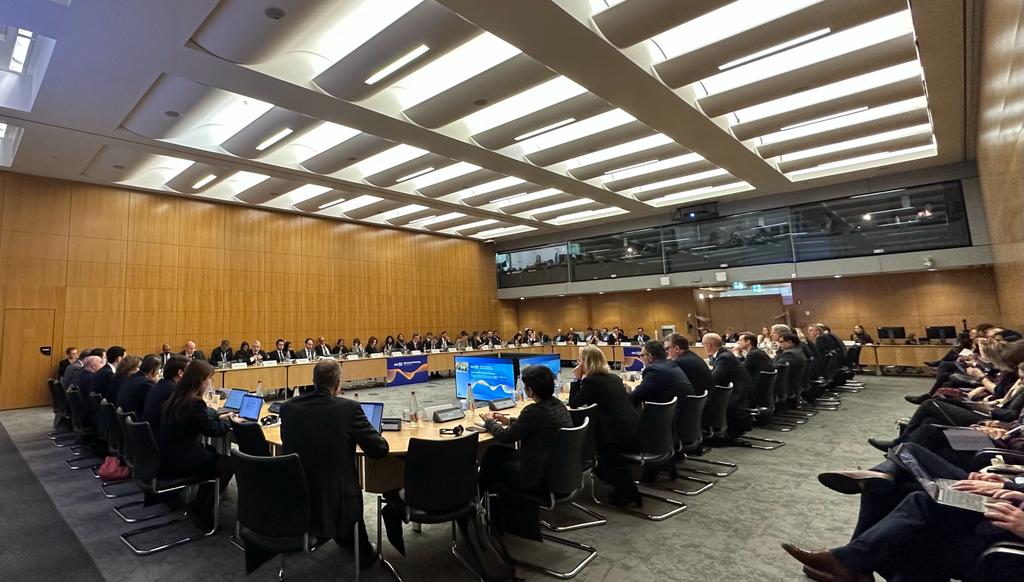Recently, the Inter-American Development Bank (IDB) had the privilege to participate in the International Energy Agency’s 2024 Ministerial Meeting and 50th Anniversary. Co-chaired by France and Ireland, this event convened ministers and energy sector leaders worldwide, reaffirming their dedication to advancing energy security and the clean energy transition to uphold the goal of limiting global warming to 1.5°C.
Addressing energy-related challenges necessitates a comprehensive approach, encompassing:
- Sector Planning: Achieving Sustainable Development Goal 7, “Ensure access to affordable, reliable, sustainable, and modern energy for all” by 2030, alongside meeting the imperative of attaining net-zero greenhouse gas emissions by 2050, demands robust sector planning. Accelerating clean energy transitions involves shifting away from fossil fuels, tripling global renewable energy capacity, and doubling the global average annual rate of energy efficiency improvement by 2030. The IDB has been instrumental in supporting the Latin American and Caribbean (LAC) region through National Infrastructure Investment Plans (NIIPs), facilitating informed decision-making and integration of development, climate, and innovation agendas into energy projects.
- Strengthening Regulatory Frameworks and Adopting Innovative Technologies: Recognizing the significance of robust policies and actions in advancing the Clean Energy Transition aligning with the 1.5°C target, leaders emphasize the development and deployment of clean energy technologies. The IDB conducts thorough sectoral diagnoses to inform necessary reforms and policy frameworks, promoting clean energy innovation and private sector participation. Examples include supporting energy transition and investments in Ecuador, along with initiatives promoting fair, clean, and sustainable energy transitions in various countries, incorporating technologies like electromobility and green hydrogen.
- Global Financial Flows: Meeting clean energy investment requirements, estimated at USD 4.5 trillion annually by 2030, necessitates contributions from the public and private sectors. The IDB advocates for private sector involvement to bridge infrastructure gaps in energy, transportation, water, and sanitation sectors. The bank commits to mobilizing resources from various financiers and implementing de-risking financing solutions. Notably, the Infrastructure and Energy sector has secured substantial co-financing in recent years.
Aligned with the IEA Governing Board’s recognition, which emphasizes the pivotal role of diversity and gender equality in realizing our collective energy and climate goals, it’s crucial to underscore that all energy sector operations at the IDB are committed to advancing gender equality. Furthermore, over 70% of these initiatives actively promote the inclusion of diverse populations, including indigenous peoples, persons with disabilities, afro-descendants, and LGBTQ+ individuals. Moreover, all our endeavors are in alignment with the Paris Agreement and actively contribute to the climate agenda. Notably, in 2023, a significant 87% of the resources allocated to energy operations were directed towards climate change activities encompassing both mitigation and adaptation efforts.
The IEA’s call for bold action resonates deeply with the energy sector’s needs, and it’s heartening to witness the Latin American and Caribbean region, supported by the IDB, making strides toward a clean energy transition.


Felicitaciones Dr. YEPEZ.
El contenido de sus presentaciones
y temas que cubre son de gran interes para nuestra Firma Consultora PMIH (USA) y GIS ( Mexico).
Estamos muy interesados en participar en operaciones en Caribe. Actualmente tenemos Consultorias en Bahamas y Jamaica. Saludos